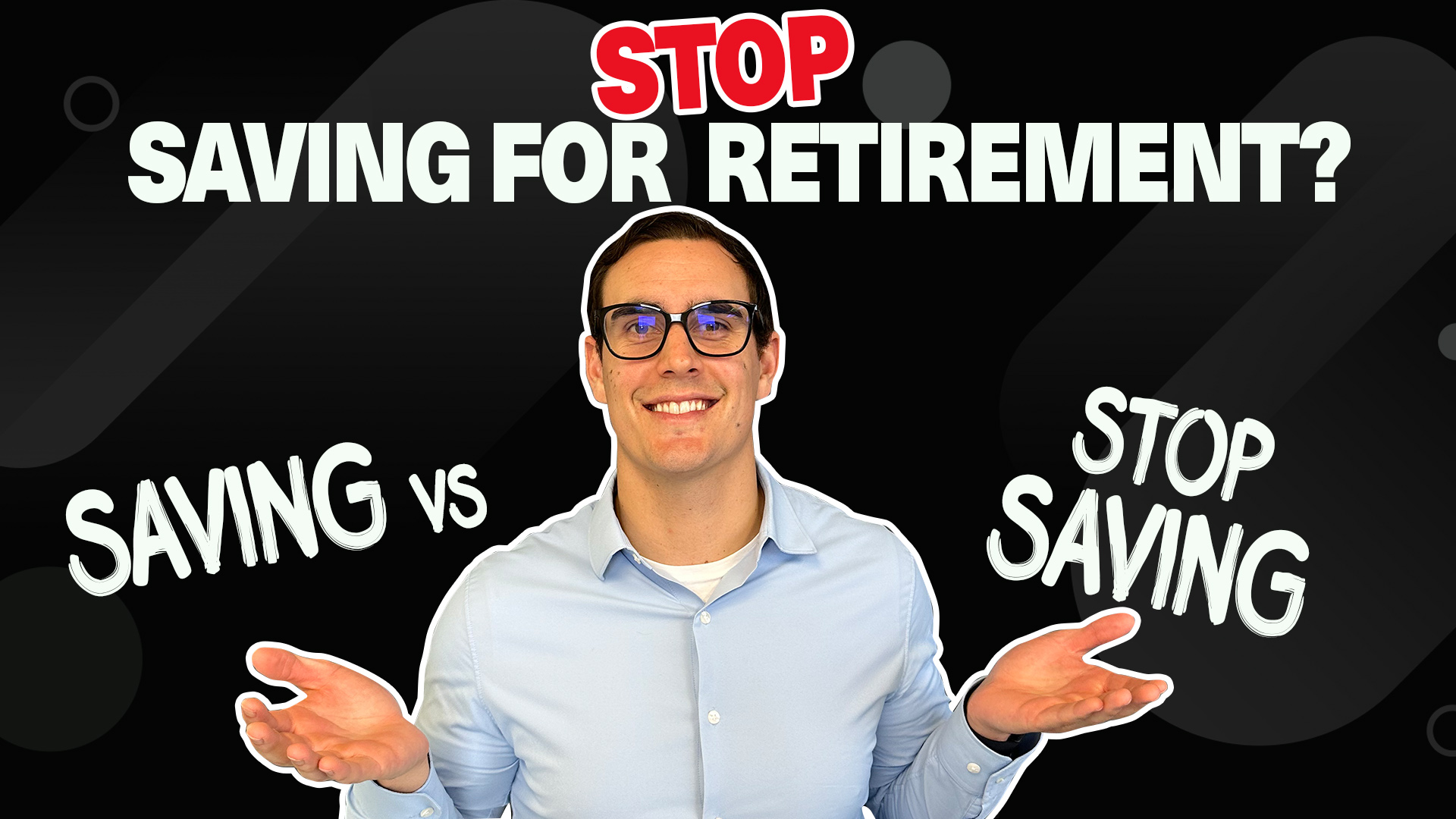In this video, we discuss when you should call it quits and start spending your hard-earned money.
Stop Saving for Retirement?

Resources:
Full transcript:
SPEAKERS
Matt Calcagno & Anthony Saffer
Anthony Saffer 0:00
When should you stop saving for retirement? Today we’re going to talk about when you should call it quits and start spending your hard-earned money. Hey there, it’s Anthony and Matt from One Degree Advisors, and we hope you gain confidence in your retirement. So Matt, if you Google the term retirement, I mean, you’re sure to find millions of articles on saving as much as you can for retirement. But there’s not a lot about when to stop saving for retirement.
Matthew Calcagno 0:24
Yeah, and the biggest fear that most folks have out there is actually running out of money. And we know that saving is the best way to combat that risk. But it comes at a cost. And really where people run into trouble is skewing too far in either direction. And I want to share a surprising study that shows that big savers are actually not spending enough in retirement. And this study looks at the spending habits of retirees during their first two decades of retirement. And the results aren’t what you’d expect from retirees, they’re not actually blowing through their nest egg, they’re doing the opposite. So I’ll just share three highlights here, the average retiree with 500k, or more at retirement, spent less than 12% of their nest egg within the first 20 years of retirement. People with a pension spent the least some of their portfolio with assets down an average of just 4%. And the median household in the study simply spent from the income and dividends and didn’t touch the principle in the portfolio. You know, they say the best savers are the worst spenders. And the data does show that and I’ll add one more point to the study. But on the contrary, basically, individuals with less than $200,000 in assets immediately before retirement had spent down about one-quarter of their non-housing assets.
Anthony Saffer 1:42
Now, many people would think, Hey, this is a good problem to have. But you do have to ask the question, you know, are you depriving yourself if you save up this money? And then don’t spend it? So how does a retiree shift their mindset from saving to spending?
Matthew Calcagno 1:56
Yeah, and it’s scary, you worked your entire life building up to this moment, and now you’re shifting to a point where you need to start using some of your life savings to cover most of your expenses. And here’s the most common sign we often see for people and why they don’t stop working and saving, even though they financially can. Number one, you don’t know what you’re saving for anymore, right? So if you’re at the point where one step forward keeps moving the goalposts, two steps ahead. It’s a never-ending cycle. In other words, if you’re stuck in the accumulation mindset, it’s really hard for people to shift to that deaccumulation mindset.
Anthony Saffer 2:35
Yeah, and this is commonly a result of just not having a plan, not knowing really where you’re going. The other part of it too is, we work for such a long timeframe, our identities can really get wrapped up in our work, and you go from not being Dan the lawyer, or Susan, the engineer, you know, to now being a retiree that maybe moves on to the next phase of life. And that could include spending that hard-earned nest egg.
Matthew Calcagno 2:59
Exactly. And here’s really where you can start thinking about pursuing those passions outside when you can stop saving. Number one is when you have a plan in place, right? Having a plan in place is great, because then you know, you can have a reasonable level of confidence. Going into retirement and having a plan you’ve taken a critical look at your numbers and things check out. You know, like, look at 2020. Did people have that pandemic in their financial plan that most people didn’t, it’s a lot of things that you just can’t control. And this is where good financial advisor, and good financial planners come in and help so many people. Left to their own accord aren’t going to necessarily have that same sort of confidence going into retirement.
Anthony Saffer 3:43
These are not easy things to figure out. We posted a video previously just addressing that question of how much money is enough, we’ll go ahead and post that and people can link to it. Again, this is Anthony Saffer with One Degree Advisors. If you’d like to learn more about how we can help you plan for retirement and gain confidence, visit our website at onedegreeadvisors.com/getstarted.
Transcribed by https://otter.ai
The One Degree Blog
Not signed up yet? Get weekly financial insights right to your inbox.
Subscribers also gain access to our private monthly client memo.
This does not constitute an investment recommendation. Investing involves risk. Past performance is no guarantee of future results. Consult your financial advisor for what is appropriate for you. Disclosures: https://onedegreeadvisors.com/solutions/#disclosures